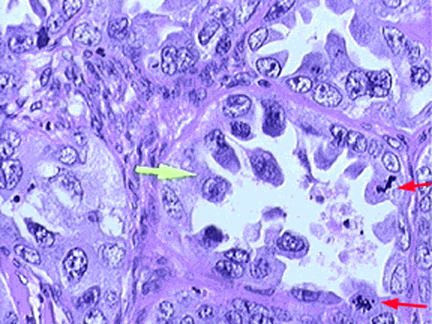
Five common genetic variants in human DNA are linked to an increased risk of developing ovarian cancer, an international consortium of scientists, including experts from Canada, suggest in a new study.
The scientists based their work, published Sunday in the journal Nature Genetics, on their prior research that compared more than 10,200 women with ovarian cancer to 13,185 women who did not suffer from the disease.
They spent three years studying genomes to learn that five additional stretches of DNA on chromosomes 2,3,8,17 and 19 often appeared in women who had developed the most common and most aggressive forms of ovarian cancer.
"we see this research as a triumph of science without borders for the benefit of women everywhere,” said lead investigator Andrew Berchuck.
“These latest findings raise the possibility that in the future, women in the general population who are at the greatest risk of developing ovarian cancer because they carry these newly discovered DNA variants can be identified and given closer surveillance to look for early signs of ovarian cancer when it is most treatable," said Berchuck, a gynecologic oncology professor at the Duke University Medical Centre in North Carolina.
He said a simple blood test could indicate which women were carriers of these genetic variants.
More than 2,500 Canadian women are diagnosed with ovarian cancer each year and 1,700 die from it, according to Ovarian Cancer Canada. Symptoms are varied, vague and easily missed. Another 130,000 people die from the disease worldwide.
When found early — and treated — the survival rate for ovarian cancer is 90 per cent, the organization says.
The scientists conducted about 30 different intricate studies using genome-wide association studies (GWAS), a technology that helps examine gene variations, to confirm these common variants contribute to an increased risk of ovarian cancer.
The statistical relevance of each of these genetic markers is small and even if a woman had all five variants, her susceptibility to the disease would only slightly increase, Berchuck conceded.
But his team plans to study how their latest findings affect other factors that determine a woman’s vulnerability to ovarian cancer.
If a woman has given birth or has used birth control for five years, her risk of getting ovarian cancer is reduced by 50 per cent.
Previous research also showed inherited mutations in the BRCA1 and BRCA2 genes can dramatically increase a woman’s chances of developing breast cancer by 60 to 80 per cent, and ovarian cancer by 15 to 40 per cent. Most women with these mutations often receive surgery to remove their ovaries, Berchuck said.
Berchuck is also a member of the international Ovarian Cancer Association Consortium (OCAC), which is composed of scientists from 30 institutions in British Columbia, Alberta, Ontario and in the United States, Europe and Australia.
© Copyright (c) Postmedia News